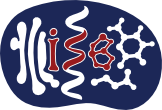Jha PK, Valekunja UK, Reddy AB. SlumberNet: deep learning classification of sleep stages using residual neural networks. Sci Rep. 2024 Feb 27;14(1):4797. doi: 10.1038/s41598-024-54727-0. PMID: 38413666; PMCID: PMC10899258.
Abstract
Sleep research is fundamental to understanding health and well-being, as proper sleep is essential for maintaining optimal physiological function. Here we present SlumberNet, a novel deep learning model based on residual network (ResNet) architecture, designed to classify sleep states in mice using electroencephalogram (EEG) and electromyogram (EMG) signals. Our model was trained and tested on data from mice undergoing baseline sleep, sleep deprivation, and recovery sleep, enabling it to handle a wide range of sleep conditions. Employing k-fold cross-validation and data augmentation techniques, SlumberNet achieved high levels of overall performance (accuracy = 97%; F1 score = 96%) in predicting sleep stages and showed robust performance even with a small and diverse training dataset. Comparison of SlumberNet’s performance to manual sleep stage classification revealed a significant reduction in analysis time (~ 50 × faster), without sacrificing accuracy. Our study showcases the potential of deep learning to facilitate sleep research by providing a more efficient, accurate, and scalable method for sleep stage classification. Our work with SlumberNet further demonstrates the power of deep learning in mouse sleep research.

